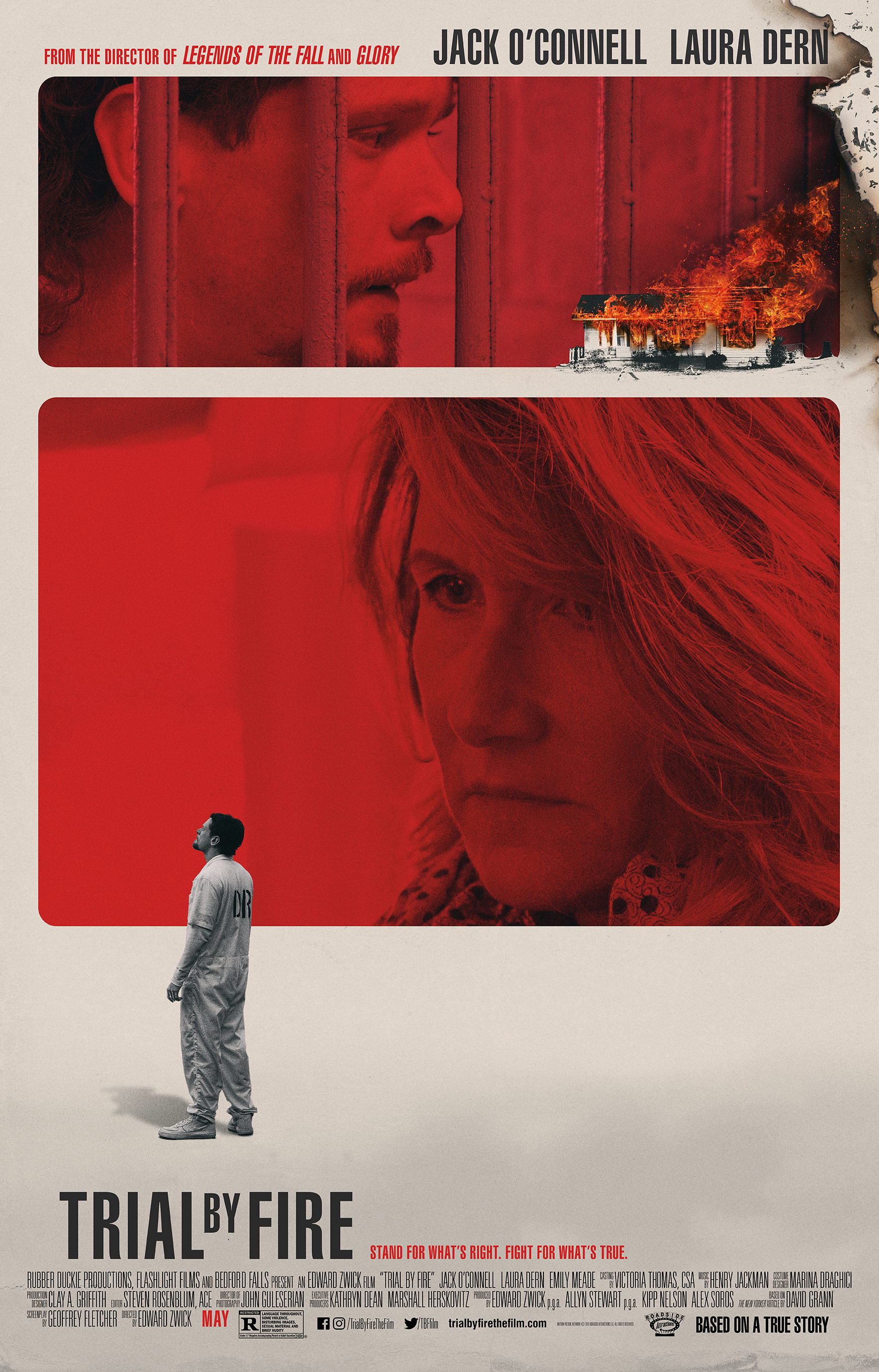A Man Convicted, A Nation Conflicted
 “People go to the movies because they want to invest in the characters and in the relationships. They don’t go to the movies to learn about issues. But that doesn’t say that they can’t have both,” director Edward Zwick said recently. Zwick was speaking on a podcast hosted by DPIC (Death Penalty Information Center) about his film “Trial By Fire,” a drama based on the life—and death sentence—of Cameron Todd Willingham. A poor high school dropout in Texas, Willingham was convicted of setting a fire that killed his three young children. But evidence later revealed that the scientific basis prosecutors used to establish arson was completely unfounded, as chronicled in an award-winning New Yorker article by David Grann in 2009. The film also explores how a pen pal program for prison inmates connected Willingham (played by Jack O’Connell) with a woman, Elizabeth Gilbert (Laura Dern), who came to question his conviction and fight for his release.
“People go to the movies because they want to invest in the characters and in the relationships. They don’t go to the movies to learn about issues. But that doesn’t say that they can’t have both,” director Edward Zwick said recently. Zwick was speaking on a podcast hosted by DPIC (Death Penalty Information Center) about his film “Trial By Fire,” a drama based on the life—and death sentence—of Cameron Todd Willingham. A poor high school dropout in Texas, Willingham was convicted of setting a fire that killed his three young children. But evidence later revealed that the scientific basis prosecutors used to establish arson was completely unfounded, as chronicled in an award-winning New Yorker article by David Grann in 2009. The film also explores how a pen pal program for prison inmates connected Willingham (played by Jack O’Connell) with a woman, Elizabeth Gilbert (Laura Dern), who came to question his conviction and fight for his release.
Although Willingham isn’t exactly a “poster boy” for the wrongfully accused—he had previously exhibited troubling behavior including abuse of his wife, and he was white, unlike people most commonly affected by the flaws and biases of the criminal justice system—his story illustrates many issues surrounding the death penalty and criminal justice reform. “False testimony, junk science, a jailhouse informant, and ineffective legal representation all played a role in Willingham’s conviction,” writes retired Texas judge Charlie Baird.
To connect the film with advocates working on these issues, ProSocial conducted outreach to organizations including The Innocence Project, Human Rights Watch, and Equal Justice USA. The film’s release came just a couple months after the news that Governor Gavin Newsom has imposed a moratorium on the death penalty in California, joining similar gubernatorial regulations in Colorado, Pennsylvania, and Oregon, as well as 20 other states that have abolished the death penalty, breaking with the majority of the country.
“I know that it’s a kind of Pollyanna-ish notion that a single film can do anything that affects policy itself,” Zwick commented in the DPIC interview. “But what it can do is add a set of images and a warm-bloodedness and a personal understanding of something that an audience might have understood only in more philosophical or political terms.” See the “Trial By Fire” trailer.


